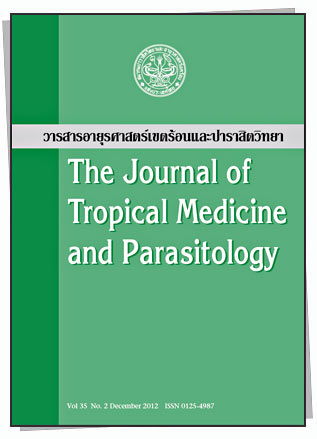Climate Change and Mosquito Vectors
Main Article Content
Abstract
Abstract
The effects of anthropogenic climate change are now impacting terrestrial ecosystems, and areplaying a crucial role in changes to insect populations: on biology and diversity, on geographicdistribution, on geographical range, number of generations, and on abundance levels. The preciseconsequences are still unknown, but the effects of climate change on insects have now been recognizedfrom the level of individual species to communities, most notably in the form of temperature-relatedrange shifts. No thorough explanation has been offered for how this will influence the spread of vectorbornediseases attributable to climate change. With regard to breeding requirements, there is evidence ofadaptation of some mosquito species to fragmented-forest environments in Thailand, while Anophelesdirus larvae are now unreported in the rock pools of some bamboo forests and caves. Studies on a largergeographical scale may provide more insight into the adaptive selection of these alternative habitats bymosquito vectors. Regarding our own field observations on the bionomics of mosquito vectors, somegeneralizations can already be made about trends in Thailand. This manuscript discusses the subjectof climate change and its potential impacts on these mosquito vectors, especially.
Keywords: climate change; insects; mosquito vectors; vector-borne diseases; Thailand

